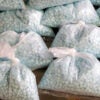The American public…just like your teenage kids, aren’t acting in a way that they should act. The American public has to really understand in their core how important this issue is.”
In case you haven’t heard, that was Secretary of Energy Steven Chu discussing your ability to curb greenhouse gas emissions. As long as we’re acting like teenagers, we might as well be treated like them. According to the Obama administration, we can’t understand what greenhouse gases are, so we’ll use the terms “carbon pollution” or “heat-trapping emissions” instead. From Lauren Morello, E&E reporter:
“We know that our planet’s future depends on a global commitment to permanently reduce greenhouse gas pollution,” President Obama said yesterday at the U.N. Summit on Climate Change in New York, one of several references to “greenhouse gas pollution” and “carbon pollution” sprinkled throughout his speech. The president also referred to “carbon pollution” in April, during a much-publicized speech to the National Academy of Sciences, and again in June, in a press conference just before the House voted to pass a broad climate and energy bill.
And he’s not alone. Top Obama administration science officials, including Energy Secretary Steven Chu and U.S. EPA Administrator Lisa Jackson, have also adopted similar vocabulary, a subtle linguistic shift in the ongoing climate debate. In fact, during an hour long June briefing to launch a major government climate change report, a panel that included White House science adviser John Holdren and National Oceanic and Atmospheric Administration chief Jane Lubchenco mentioned greenhouse gases just once — instead warning about the perils of “heat-trapping gases” or “heat-trapping pollutants.”
According to Lubchenco, that’s a conscious word choice designed to demystify the science of climate change: “The choice of that term is intended to make what’s happening more understandable and more accessible to non-technical audiences,” she told E&E in a recent interview. “You know, scientists so often use a lot of jargon without necessarily appreciating that it’s jargon. And ‘heat-trapping pollution’ calls a spade a spade, essentially. It says what it is, but in a way that is less jargony.”
The Daily Signal depends on the support of readers like you. Donate now
Interestingly enough, the administrations seems perfectly content with using the jargon “cap and trade.” Why not use energy tax? It’s such an easily digestible phrase that Americans will truly understand just how ‘important’ cap and trade really is. We’ll even help them get started with messaging even a teenager could understand.
We’re going to tax your energy so high that you use less of it because energy emits heat-trapping emissions and some scientists say that will lead to global warming and catastrophic consequences for our environment. There’s only one slight problem. Because 85 percent of the energy releases carbon pollution into the atmosphere, you’ll still have to use energy – you’ll just have to pay a lot more for it.
You’ll pay more for gasoline and electricity. The products you buy will be more expensive because they take energy to make. The energy tax will slow economic growth and destroy jobs but it’s all right because we’ll reduce those heat-trapping pollutions enough to reduce temperatures by only five hundredths of a degree in 2050 and two-tenths of a degree Celsius by 2100.
Thanks for understanding!






























